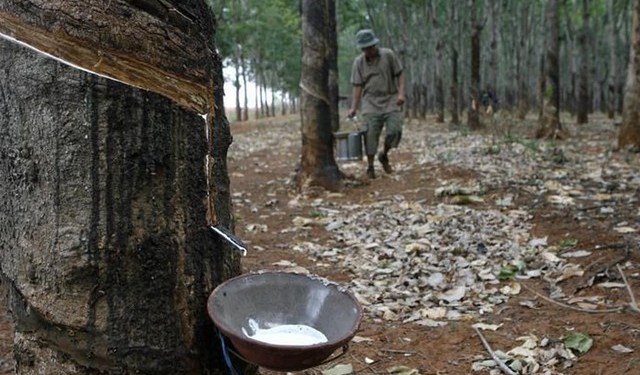Rubber fell a second day as Japan’s currency maintained its biggest gain in two months amid concern that the U.S. will take military action against Syria.
Rubber for delivery in January on Tokyo Commodity Exchange retreated as much as 1.4 percent to 271.7 yen a kilogram ($2,795 a metric ton) and was 273.6 yen at 11:16 a.m. local time. The contract for delivery in February, which started trading today, was at 275.8 yen.
The yen traded at 97.08 per dollar after climbing 1.5 percent yesterday. Asian stocks fell a second day as President Barack Obama works with allies including the U.K. and France to reach agreement on limited action against Syria after concluding the regime used chemical weapons on civilians. The stronger Japanese currency reduces the appeal of yen-based contracts.
“It’s risk-off mode amid concerns of possible U.S. military action on Syria,” said Naohiro Niimura, a partner at research company Market Risk Advisory Co. in Tokyo. “The stronger yen also hurt rubber.”
Thailand’s rubber policy committee will consider ways to support the industry, including a proposal by farmers to buy sheet at 80 baht per kilogram, said Pakdiharn Himathongkham, a government spokesman, yesterday. About 450 protesters blocked a road and rail line in Nakhon Si Thammarat province, demanding the government buy rubber at above-market rates.
Rubber for delivery in January climbed 0.5 percent to 20,795 yuan ($3,398) a ton on the Shanghai Futures Exchange. Thai rubber free-on-board gained 0.6 percent to 84.45 baht ($2.62) a kilogram yesterday, according to the Rubber Research Institute of Thailand.
Source: Bloomberg



























